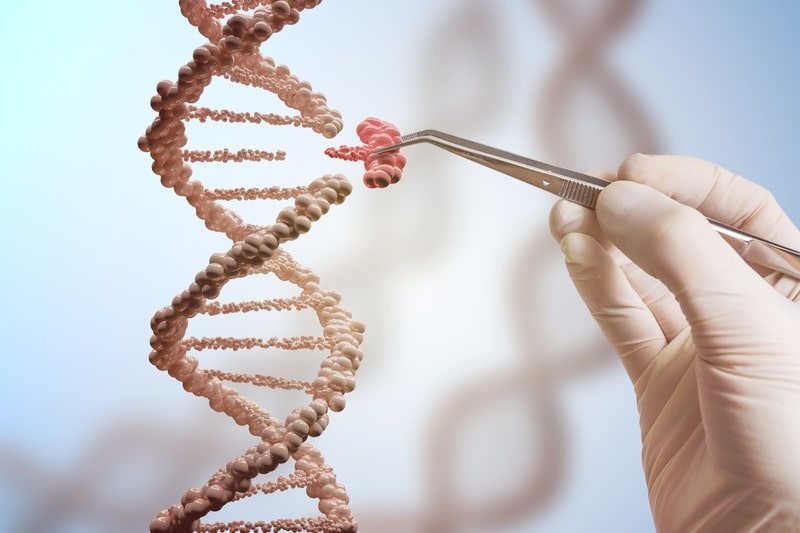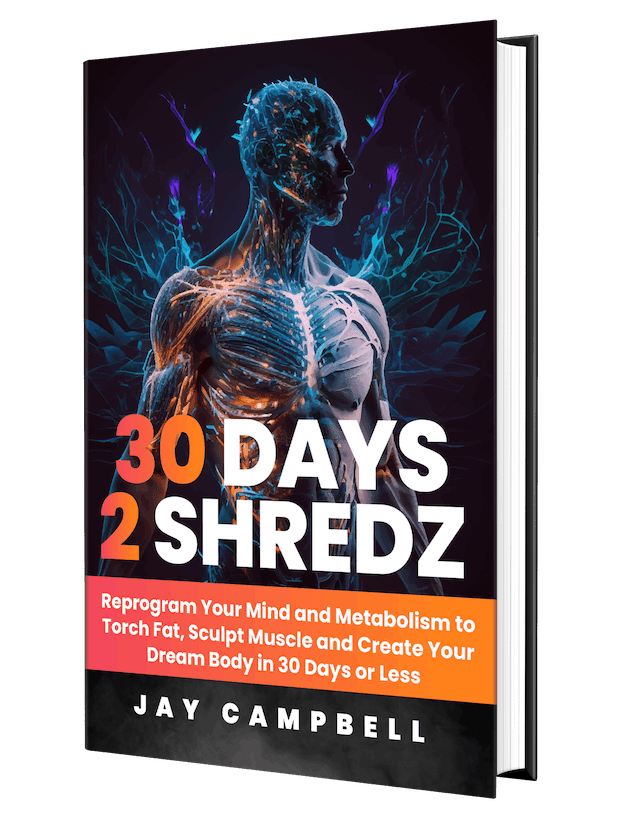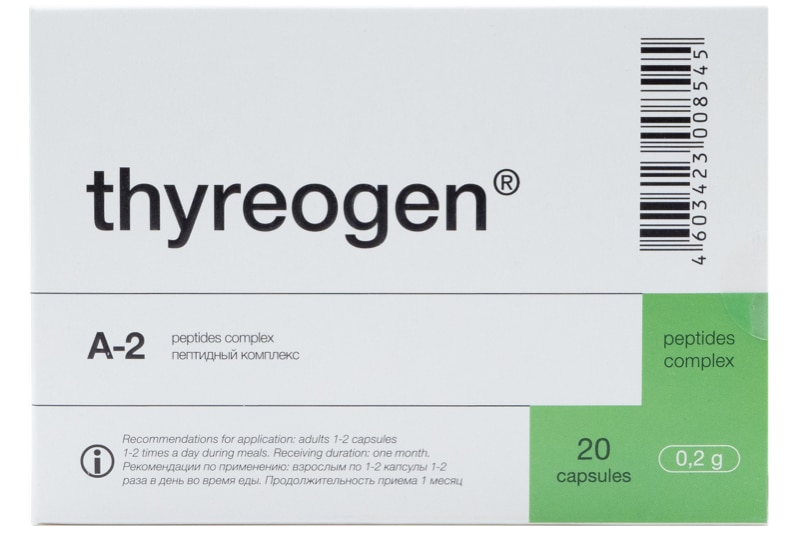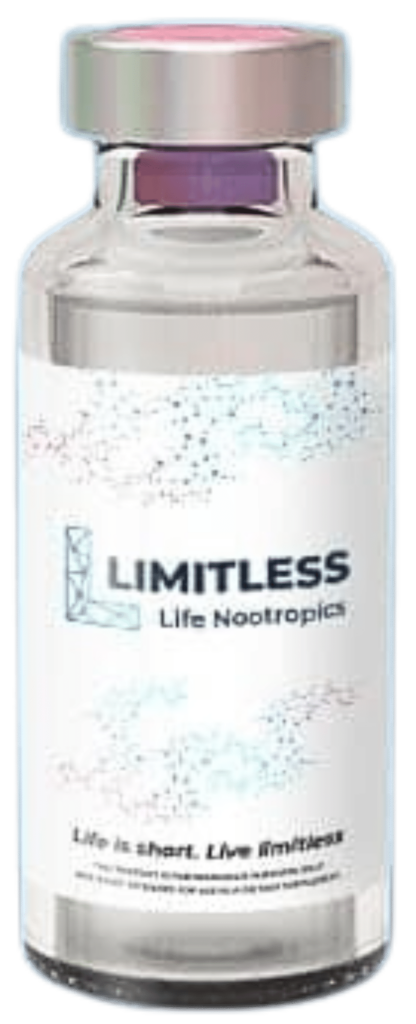After a long hiatus on publishing articles due to wrapping up production on the very soon-to-be-released fat loss book 30 Days 2 Shredz, I AM proud to say the weekly articles are making a much-needed comeback!
And what better way to start than to jump back into the world of peptide bioregulators?
Today’s article will be about Thyreogen, the bioregulator responsible for normalizing thyroid gland function.
I’ve already covered Ventfort for regulating blood flow circulation, and Pinealon for regulating the pineal gland.
(NOTE: If you’ve completely forgotten what peptide bioregulators are, read the introductory article and watch the introductory podcast first).
Thyreogen may not universally target multiple organ systems like the other two can, but it certainly doesn’t make it less useful.
Keep reading to see what makes it so promising for improving overall thyroid health!
Table of Contents
ToggleWhat is Thyreogen?

Thyreogen is a peptide bioregulator that falls under the category of a Cytomax, meaning it is a natural complex of low-molecular-weight peptide fractions (<5000 Daltons) extracted from a target organ/tissue of young animals… usually calves under a year old.
In this case, this complex is isolated from the thyroid gland of these animals and therefore will specifically target the thyroid gland in humans when administered normally.
Its role is very simple: Restore and normalize thyroid gland function.
But unlike Ventfort, whose “active center” is fully characterized in the form of a tripeptide, I was unable to find the same thing for Thyreogen.
In fact, the only papers I could find mentioning anything of the sort come from two references I dug up in the book The Peptide Bioregulator Revolution:
“Research shows that synthetic tetrapeptides such as those containing the amino acids lysine, glutamine, aspartate and glycine normalize the function of the thyroid in experimental animals (9), and that synthetic peptides that regulate the function of the thyroid may… ‘exert tissues specific effects on thyroid gland cells and enable the restoration of the disturbed thyroid tissue function’ (10).”
Both of these papers do not mention the name Thyreogen or any variation of it, AND they do not refer to a single tetrapeptide (i.e. 4 amino acid long peptide).
Rather, two tetrapeptides are simultaneously mentioned at once:
- Lysine (Lys K), Glutamic Acid (Glu, E), Aspartic Acid (Asp, D), Glycine (Gly, G) – referred to as the anterior pituitary peptide (APP) or the adenohypophyseal peptide (AHP)
(Created with PepDraw)
- Alanine (Ala, A), Glutamic Acid (Glu, E), Aspartic Acid (Asp, D), Glycine (Gly, G) – referred to as the posterior pituitary peptide (PPP) or the neurohypophyseal peptide (NHP)
(Created with PepDraw)
Why is this obsession over chemical structures important?
Because when you look at the catalog of peptide bioregulators, they have specific code names to separate themselves from one another.
In the case of Thyreogen, the active substance (i.e. whatever 2-4 amino acid long peptide confers the bioregulator’s effects) is classified as “Peptide complex A-2”.
And usually, there is a Cytogen that exists alongside Cytomax.
Meaning the Cytogen will purely be a synthesized version of the super-short peptide acting as the active substance within the Cytomax.
When it comes to Thyreogen, a complementary Cytogen does not exist.
So as it stands right now we do not have the full characterization of the peptide powering the Thyreogen complex.
Let’s dive deep into what this bioregulator can do for us!
How Does Thyreogen Work?

Thyreogen has a very interesting mechanism of action with respect to regulating thyroid hormone production.
Before Phil Micans was introduced to the wonderful world of Jay Campbell, he was explaining how Thyreogen works to biohackers all over the Internet.
In particular, I was intrigued by the explanation he gave to Ben Greenfield:
“…if one is to take the thyroid peptide bioregulator, one would find that if you were hypothyroid, in other words, you have a weak thyroid, you’re not producing enough thyroid hormones, it would activate the genes to actually make your thyroid gland produce more, which is great obviously, very natural.
But, on the counter, if you were hyperthyroid, which is more unusual but there’s still plenty of people out there who are hyperthyroid, in other words, you’re producing too many thyroid hormones, the same peptide through its bioregulation will silence the gene and bring you down within this, shall we call it, optimal band.”
Putting this into simpler language, you can treat either hyperthyroidism OR hypothyroidism and return your thyroid hormone production to an optimized middle ground.
Now, as to how specifically this works and why with respect to select molecular interactions?
I don’t have the answer for you and neither does Phil himself.
Based on what we currently know about peptide bioregulators, protein synthesis and gene expression within the thyroid is involved.
This has numerous applications for common health problems such as unusual body temperatures, anxiety, weight loss/gain, anxiety, lethargy, and more.
Granted, you won’t be able to artificially raise or lower your thyroid hormone levels to supraphysiological levels… which I know will upset the bodybuilders.
But if you knew anything about how the body works, you wouldn’t want to do something so stupid in the first place.
Why Is The Thyroid Gland Important For Human Health?

I’ve already covered the importance of the thyroid gland extensively in my deep-dive article about desiccated thyroid, a MUST-HAVE agent for fully optimized health.
It can affect your rate of metabolism, your body temperature, your ability to sleep, and a whole host of other things.
However, in interviewing International Aging Systems (IAS) Vice President Phil Micans, one of the top guys in the world for peptide bioregulator knowledge, he revealed some unique intel I hadn’t thought about before.
He introduced me to a doctor by the name of Dr. Broda Barnes, who published the book “Hypothyroidism: The Unsuspected Illness” in 1976.
And you should care because what I’m about to tell you reveals the pioneering work through which many health optimization doctors and myself understand how the thyroid gland works today.
Back when Dr. Barnes was practicing, the scientific consensus was that hypothyroidism (i.e. under-active thyroid gland function) affected 5% of the American population, maybe 10% at a stretch.
Dr. Barnes was unconvinced and stated the REAL number was 40-50%.
In fact, his book describes nearly 50 symptoms directly tied to suboptimal thyroid function such as:
- Extreme difficulty with weight loss
- Chronically low energy levels
- Cold body parts
- Thinning hair
- Poor ability to concentrate
- Frequent memory disturbances
- Infertility
- Acne
- Hypertension
- Migraines
(NOTE: For an extended discussion on subclinical hypothyroidism, read my interview with Dr. Rob Kominiarek in Chapter 17 of The TOT Bible)
But where things really get interesting is Dr. Barnes’ discovery of just how unbelievably precise the thyroid gland can be in telling us our bodies aren’t working optimally.
Back in the 1940s, Dr. Barnes was convinced the blood tests done to assess thyroid function were inaccurate.
So what he did was formulate something called the “Barnes Basal Temperature Test”:
- Every day for the next two weeks, you track your body temperature immediately upon waking up using a thermometer placed in your armpit
- An average temperature of 36.6°C – 36.8°C (97.8°F – 98.2°F) indicates normal thyroid function
- An average temperature below 36.6°C (97.8°F) indicates hypothyroidism
- An average temperature above 36.8°C (98.2°F) indicates hyperthyroidism, i.e. an over-active thyroid gland
Dr. Barnes explains his rationale for this unorthodox medical test:
“…these [blood tests] are often normal even though the thyroid gland is malfunctioning. This is because the tests show only how much thyroid hormone is circulating in the blood, and tell nothing of how well the hormones are functioning on a cellular level. Additionally, the loss of up to 70% of thyroid function may occur before blood tests become abnormal.”
“This [temperature] test is superior to standard blood studies for evaluation of thyroid function. Blood tests measure only pituitary (TSH) and T3 hormone blood levels, while temperature readings measure how much energy is actually being generated in cells”
In Phil’s opinion, simply doing a course or two of Thyreogen will be enough to get your temperature back into the optimal range within a few short weeks.
But there’s another reason why the thyroid gland is important: Rapid fat loss.
I AM a firm believer in thyroid down regulation being one of the biggest red flags of poor fat loss protocol design.
This almost always happens when somebody tries to cut calories and carbohydrates WAY too aggressively.
Look, your thyroid will inevitably downregulate and your basal metabolic rate will go down while in a caloric deficit, making it harder to lose weight and fat.
People who suffer from hypothyroidism struggle to lose weight while gaining it easily, which is the majority of the population.
People who suffer from hyperthyroidism lose weight easily, which is why bodybuilders will attempt to abuse synthetic thyroid hormones to artificially elevate their body’s thyroid hormone activity.
(Any bozo knows this will have bad consequences, such as thyrotoxic periodic paralysis (TPP) that manifests as myalgia and muscle weakness)
The real question is how you overcome this and safely yet effectively manipulate thyroid function to accelerate the rate of fat loss.
How do you defeat the common trap of shutting your thyroid completely and falling in a position where the scale doesn’t move anywhere no matter how much further you drop your calories?
30 Days 2 Shredz will have the answer to this long-standing question – and many more – once it comes out.

Stay tuned!
Thyreogen Benefits

So what health benefits of the Thyreogen bioregulator can we expect to see if people start taking it?
In Chapter 4 of the book The Peptide Bioregulator Revolution, Thyreogen’s use cases seem fairly limited in what it would treat and who would benefit from it:
“This may be useful in conditions affecting the thyroid, including hypo or hyperthyroidism, thyroid nodules, thyroiditis, low iodine conditions, and unclear symptoms that may be connected to thyroid dysfunction, such as tiredness, loss of energy constipation, hair loss, weight gain or loss, etc.
Menopausal women, who are likely to develop some symptoms of low thyroid function, are also likely candidates for treatment. It works the same way as natural peptides in the body, and so it can be considered as a ‘bioidentical’ compound.”
We can reasonably extract other uses of Thyreogen from this snippet, such as:
- Autoimmune disease treatment
- Possible thyroid disease prevention
- Metabolic disorder treatment
- Thyroid function maintenance at older ages
Unfortunately, that’s all the scientific evidence in existence we have for Thyreogen (at least what can be reasonably accessed by someone in the Western World).
But there was one obscure clinical trial I was able to find buried deep in a hard-to-find document (pages 72-75), although it is unclear which medical journal it belongs to.
Here’s the long-and-short of it…
Between November 2005 and January 2006 at the Medical Center of the St. Petersburg Institute of Bioregulation and Gerontology, researchers wanted to evaluate the effects of Thyreogen in older patients (56-67 years old) with primary hypothyroidism.
All patients complained of headaches, memory impairment, drowsiness, and rapid fatigue.
The control group of 19 patients received conventional drugs and therapy for their hypothyroidism.
The test group of 25 patients received the same thing except they also received 1-2 capsules of Thyreogen twice a day, 10-15 minutes before their meals, for 20 days straight.
Here is what the researchers found when the study was done:

In conclusion…
- 78% of the patients taking Thyreogen saw a clear improvement in symptom resolution of their disease
- Lower pain in the heart region, decreased frequency of headaches, and higher capacity were reported among Thyreogen users
- 3-5 months after treatment with Thyreogen, thyroid gland parameters remained within the physiological norm
- No side effects or contraindications were reported by any patients using Thyreogen
Very impressive results for a peptide bioregulator, although I would really like to see these results replicated with a much larger sample size and a more rigorous study design.
But this is where the published evidence ends for Thyreogen
I’ll close off this section with some anonymous testimonials I found online.
There’s no way to confirm important details such as age and nature of thyroid problems, so take them with a grain of salt:
“I’ve had thyroid issues for years, and noticed I felt a lot better when taking T3. However, I always look for the root cause issue and long term solution. I don’t want to have to take T3 every morning for the rest of my life, so I started a thyroid peptide bioregulator protocol a month ago [two capsules of Thyreogen daily]. I slowly decreased my T3 as I took the Thyreogen peptide bioregulator… haven’t been taking any T3 for 2 weeks. Usually I would notice if I missed my T3 dosage (low energy), but this time I feel good without the T3… I just got did blood labs and my thyroid numbers look good including T3 and I haven’t taken any T3 since i started the peptide bioregulators. I’ll definitely be continuing 2 per day for 10 days every 2-3 months indefinitely.” (Source)
“I took the one for thyroid. I only took it for one month and it turns out I was supposed to take it on empty stomach and I took it with meals. I did notice my hair didn’t fall as much as before and my thyroid labs improved.” (Source)
“After starting to take this in early spring, I felt a marked increase in energy and general wellbeing. My thyroid lab results also improved, with both TSH and the conversion from T4 to T3 improving. Prior to trying the peptides, I had managed to get off thyroid meds for longstanding hypothyroidism, (using diet and nutritional supplements) but last winter my thyroid labs went off again. I tried the peptides as a last-ditch measure before getting back on thyroid medication. They worked! I have been taking them on and off ever since.” (Source)
In short: Unless you’re 40 years of age or older, a menopausal woman, or actively correcting thyroid hormone dysfunction, this isn’t something I would recommend to the younger crowd.
You could definitely use Thyreogen as someone in their 30s or younger to support and optimize healthy thyroid function, but you’ll have to experiment with it and see what it does for you.
Thyreogen Dosage

The best dose of Thyreogen for better health seems to follow the same regimen as any other peptide bioregulator.
Officially, it is recommended to follow these instructions:
- For 30 days, take 1 capsule ~15-30 minutes before your morning meal and 1 capsule ~15-30 minutes before your evening meal (i.e. 2 capsules daily)
- Every 3 months afterwards, you would take 1 capsule twice a day in the same fashion as described above for 10 days
This would add up to 60 capsules in the first month, and 120 capsules for the entire year.
In more severe cases, you would repeat the 10-day streak of 2 daily capsules every 2 months – or every month – instead of 3 months.
Under the guidance of a physician familiar with bioregulators, you may end up taking more capsules during the day and more frequently if your current state of thyroid health calls for it.
And the usual common-sense rules for any supplement still hold:
- Keep Thyreogen in a cool, dry, dark place (2°C to 25°C) that’s out of the reach of children
- Avoid using Thyrogen if you are a woman who is pregnant and/or lactating
- Check if you are allergic to any of the inactive ingredients: Microcrystalline Cellulose (E460, flowing agent); Gelatin (encapsulating agent); Lactose (milk sugar); Calcium Stearate (E470, emulsifier)
However, I highly doubt Thyreogen needs to stand on its own.
I would imagine you could easily pair it with another thyroid medication such as desiccated thyroid, or even another bioregulator such as Ventfort, for faster and better thyroid recovery.
One final rule: If you have had your thyroid completely removed (i.e. thyroidectomy), it will be completely pointless for you to use Thyreogen.
If you did what I asked and caught yourself up to speed, you’ll know peptide bioregulators are systems-specific and will only target a certain organ/tissue.
So there is effectively nothing for the bioregulator to act upon and they become useless.
Where To Buy Thyreogen

For the time being, Profound Health (a sister company of International Anti-Aging Systems) is the #1 online vendor for purchasing legitimate peptide bioregulators.
Use code JAY15 to get 15% off your order!
They have Thyreogen, Ventfort, Pinealon, and every other synthetic/natural bioregulator in existence.
They’ve been around since 1991 and always ship internationally, so you’ll get your order no matter where in the world you are.
And while you’re waiting, feel free to dig into the +1,000 premium articles they share for FREE covering bioregulator clinical trials, expert interviews, and extensive deep-dives into human biology.
CONCLUSION: Don’t Neglect Your Thyroid!

Thyreogen is an interesting peptide bioregulator because it addresses thyroid gland dysfunction in a way I’ve never seen before.
Not even desiccated thyroid can simultaneously bring lower-than-normal and higher-than-normal thyroid hormone levels back to biological homeostasis!
But it’s a tool I look forward to using and possibly adding to my repertoire if it makes a meaningful impact.
Will it make any noticeable difference in my never-ending efforts for extreme fat loss?
Very doubtful (but that can change).
Would I recommend it to anybody suffering from thyroid problems who wants to use something outside of the confines of “sick care” medicine?
Absolutely.
I can’t think of an easier way to potentially address a MASSIVE health problem in over half of Americans than simply swallowing a few capsules a couple of times a year.
As always…
Raise Your Vibration To Optimize Your Love Creation!
PS – To keep up with my journey of experimenting with peptide bioregulators behind the scenes, join The Fully Optimized Health Private Membership Group.
It’s your greatest opportunity to fully optimize your health and gain total access to me and my network of high-level men and women living their highest and best life.



